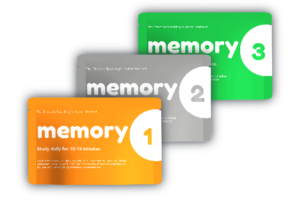A lot of my students feel that TOEFL iBT is unfair. They have lists of reasons why. When people are stuck feeling like a victim, they are automatically less powerful, less confident.
If you need a Speaking score of 26, you can’t feel like a victim. You have to feel like a boss (or at least sound like one, even if somewhere, deep down, a tiny part of you is shaking).
Getting out of the “victim” mindset makes it so, so, so much easier to pass TOEFL iBT. After 11 years of watching pharmacists, physical therapists, nurses and other ambitious students take the TOEFL test, I can tell you that the people who get the scores found a way to get out from under TOEFL, and flip it over, and be on top.
It takes effort to get out from under a situation that feels like a punishment. Below is my story about how I did it during a situation that most closely resembles my students’ struggle with TOEFL iBT.
After my story, I’ll summarize what I think the “take away’s” are, and I hope it helps you get unstuck from the feeling of unfairness.
The Test that Made Me Super Angry
Back when I lived in Istanbul in 2013, I was chewing through the coursework to get my DELTA teaching certificate. It was an extra certificate on top of the one I already had. Mainly, I wanted the prestige of being able to say that I had finished Cambridge’s notoriously brutal requirements. Module 1 had basically a single requirement: To get a passing score on a test that was named (uncreatively), The Module 1 Test.
At first, passing seemed simple enough. It was just a test, right? Well, it turned out to be a real beast. Pretty quickly, I realized that I needed someone’s help to pass the test, so I enrolled in a local preparation class.
Prep classes were weekly and the “students” were all local teachers. Basically, every class, the head teacher would present something that was going to be on the test. She put all of us student teachers into small groups. We were supposed to answer together in groups, but because we struggled so much, mostly we would just admit that we were not sure how to answer. Then our group time would devolve into complaining about how this material did not seem relevant for any of our current jobs.
Basically, to avoid admitting our own ignorance, we focused on why the exam sucked. Don’t forget that all of us were sitting there 100% by choice. We already had jobs. We just wanted something better. And in the process of trying to reach something better, we were confronted by what we didn’t know.
Initially, it was much easier for me to blame The Module 1 Test than it was to look at my own deficiencies.
The first thing that made me angry was that we had to handwrite our answers. The test questions were photocopied. We were given a blank booklet with 30 totally blank (unnumbered!) pages to write our answers in for the 15 or so tasks. The amount that we needed to provide was practically a book… And we had to write by hand. That was incredibly hard for me after years of working on a computer. I was frustrated about how slow it was for me to write by hand.
Another thing that made me angry was the content of the exam. It was genuinely challenging and I couldn’t see how it was useful because I never needed these things at work. We were going to be tested on loads of terminology, advanced grammar concepts, discourse theory and the function of language, the methodology of testing, and a whole bunch of concepts related to accent: intonation, rhythm (or “syllable stress”) and worst of all, those weird little pronunciation symbols: /æ ɪ ʃ ʒ ŋ ə oʊ ɔɪ/ It seemed so stupid to many of us because that none of the schools we had taught at ever even cared about those concepts. So why did I need to learn that?
Another sore spot for me was that there was hardly any material to practice the test with. They gave us only 2 — just 2 — complete mock tests with full model answers. I scoured the internet for any other test preparation material, but I came up empty handed. I was afraid that the tiny bit of preparation material would not be enough for me to get confident with the test format, or figure out how to answer the tasks.
To make matters worse, if I failed, the test company would not give any details about why, or which questions I lost points on. So if I needed to take it again, what should I study? And then, the tests weren’t offered very often — just twice per year, so if I failed, I would have to wait so long to take it again. Plus, registration was expensive, too. This made me super nervous and even angrier.
After a few weeks, because I wasn’t feeling that the group classes were helping me, I had a private meeting with the head teacher. I asked her to name a tutor that I could pay for extra help. I offered to pay her. She refused to tutor me, and she also didn’t give me a tutor’s name. She was like, “You should be able to just study by yourself.” So let’s add that as my Reason #9 or 10 for being angry.
My anger was a direct result of how unfair the test seemed — and the test seemed impossible and unfair because I felt overwhelmed and stupid and small.
How My Anger Turned into Respect
Thank god I had an epiphany. Moment by moment, a bunch of small but significant realizations piled up. When I was walking to the bus after my meeting with the head teacher that day… When yet another colleague complained yet again about how irrelevant and difficult the test material seemed … When I was back at my job, creating lesson plans for TOEFL iBT students to get scores of 26 on Speaking…
A little voice in the back of my mind whispered…
“Maybe your students’ accents for TOEFL would improve if you used symbols like /θ/ and /æ/ and /ɔɪ/. Maybe if you were better at teaching intonation, your students’ could overcome their own deficiencies. And if you don’t learn it for them now, when will you?”
and
“There is a clear connection between the 30-page blank, unnumbered answer booklet and each task for Speaking and Writing on TOEFL iBT. Can’t you see it?”
and
“TOEFL test takers don’t get to know any details why they didn’t get the score, either. This is the closest you will ever get to feeling what your students feel about TOEFL.”
and
“Jaime, if you can’t figure out how to pass this test, what are you even doing tutoring for TOEFL iBT?”
All those little realizations crystalized into truth, and as a result, one day, I found myself deeply respecting The Module 1 Test. Instead of hating it and being angry at it and complaining about it, I just saw it for what it was: A ladder to a better version of me.
I spent less time studying with my colleagues and more time studying by myself. Studying was so much easier and so much more productive when I was not constantly dragged down by negativity.
I challenged myself to connect and apply the test content into my lessons for TOEFL iBT — even though no one asked me to. I challenged myself to use what I was learning for the test. Why? Just because I wanted to be better and smarter.
I can’t say that I liked the Module 1 Test, but I respected it.
Passing
As the date of the test got closer, I studied harder and harder. My apartment was covered in various piles of papers and flashcards. I had to ease up on my work schedule to create time for all of the mock tests that I created and scheduled for myself.
On the day of the test, about 30 of us solemnly walked into a room and took our seats. The photocopies of all the questions were passed out. We were forbidden from opening them early. No peeking! No extra time to think! Then we were given the booklet with all those blank, unnumbered pages.
Before the time officially started, I sat there, eyes glazed over, busy thinking, reviewing silently, reminding myself what my plan of attack was in 3… 2… 1…
As soon as the proctor gave permission, I flew into action. First was numbering my pages, then drawing out the organizational templates to remind me what kind of information I needed to include on each of the tasks. Each question had “bonus points” hidden inside, but I knew I would get caught up and forget to include that information without those visual prompts. After all I wrote out all 15 templates, I started reading and properly answering the questions. For the next four hours, I poured my brain onto those pages. I was exhausted when I was done. I knew I had made some mistakes, but that day, it was the best I could manage.
Months later, I found out that I passed and I got my certificate.
The "Gifts"
 With all the years that passed since then, I can say with 100% certainty that I learned skills in order to pass that the Module 1 Test which I still use regularly for my job.
With all the years that passed since then, I can say with 100% certainty that I learned skills in order to pass that the Module 1 Test which I still use regularly for my job.
At the time, I didn’t have the experience to see the value of how the activities for the test could impact my ability to do my job, but the simple truth is that I am more effective at my job today because of that test.
Case in point… Those darn pronunciation symbols! That test made me learn how to write with those crazy pronunciation symbols: æ ʃ ʒ ŋ ɑ ɪ ð θ ə and also identify syllable stress for rhythm and intonation. Those were the missing pieces in my own skillset as a tutor for TOFEL iBT Speaking — and it’s exactly what my students (who had unclear pronunciation) needed at the time. Unfortunately, way back in 2011 and 2012 and 2013, I didn’t have the tools or the skills or the protocols to help them retrain their accents and fix those fossilized errors, so they just continued having problems.
Today, however, I have an entire process that trains spontaneous accuracy and reduces errors by 80-85%. If I hadn’t pushed myself to pass the Module 1 Test, I don’t know how I would have had the foundation to create The Effective Speaking in Action Method, or the Memory Pouches and protocols for Developing Automaticity.

How to Get Unstuck from "Unfair"
Here is where I think that my experience overlaps with your challenge for TOEFL iBT.
1. Focusing on how the exam is “unfair” wastes precious energy that is better spent as action studying to pass the exam.
2. Even when we’re “forced,” we still have a choice. You are surrounded by options. You choose whether or not to do what it takes to pass these requirements. It’s absolutely possible (and acceptable) to stay exactly where you are.
3. Figure out how to respect the exam — or at the very least trust that it has the potential to make a better version of you.
- Focus on the “gifts” that it gives you. Connect what you’re learning to your career or life. If you have a White Binder from me, open it to the Mindset Section. On page 15 is a place to make your list.
- Find a way to justify how the requirement benefits you. This is especially important for aspects that seem overwhelmingly ridiculous and unfair — whether that’s better English or more trust and faith in yourself.
4. Sometimes we really won’t learn it until we are “forced” into it. Life doesn’t inspire us to memorize or improve with the same intensity or purpose that taking a test does.

